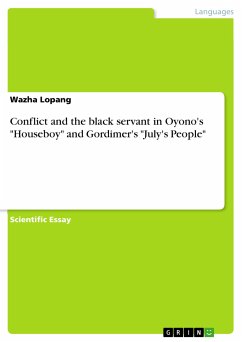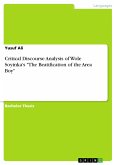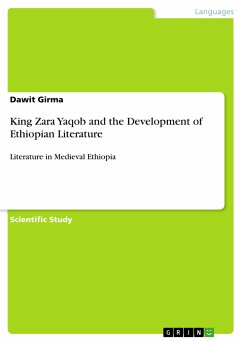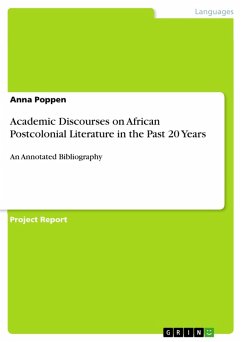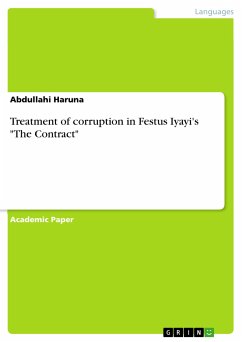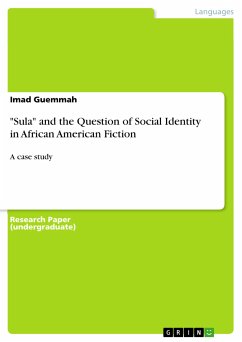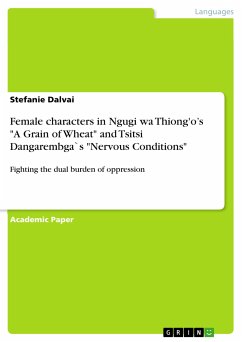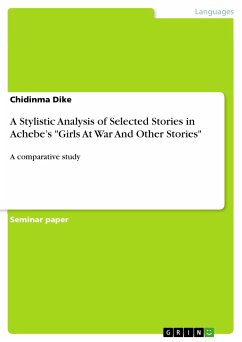Scientific Essay from the year 2015 in the subject Literature - Africa, University of Botswana, language: English, abstract: This study intends to compare the portrayal of conflict in Ferdinand Oyono’s „Houseboy“ and Nadine Gordimer’s „July’s People“. Specifically, it looks at how the black servant is forced to balance the loyalty he has for the white employer and for his African roots. The analysis of „Houseboy“ will focus on how conflict is represented between whites and blacks, how it can satirically have a positive influence on others and lastly, how conflict among the blacks can be very destructive. „Houseboy“ shows how conflict can be prompted by stereotypes; how it can be a shield from other pressing concerns and even how conflict itself can provide an outlet for humour. The analysis of „July’s People“ will on the other hand focus on how people can live together under pretences that they are at peace with one another when in actual fact they are not; how the black servant can be in conflict with people of other races or their traditions as well as how that servant can be in conflict with fate or destiny. In conclusion it will be shown how „Houseboy“ is more explicit in portraying conflict than „July’s People“ due to the events that happened in the two texts. An argument can be made therefore if conflict experienced by black servants during the colonial period was more in the open as opposed to that of apartheid South Africa.
